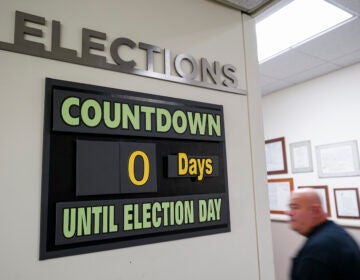Obama’s good and bad proposals to increase taxes
Taxes are the price we pay to live in a free society. Someone has to pay for the police and fire departments, the courts and judges, the highways and stop lights, the Army and Air Force, and of course our elected representatives who write our laws.
The professor who taught me tax law, Stanley H. Surrey, said that whether or not you believe in a progressive income tax, under which higher income taxpayers are taxed at a higher rate, is like religion. You will never be able to convince someone who believes differently that you are right and that he or she is wrong.
President Obama is a believer in the progressive income tax and believes that our current tax rates are not progressive enough. He wants to raise revenue for the government by raising tax rates on higher income taxpayers, or as he calls them, the rich.
I’m old enough to remember when President Kennedy, who Professor Surrey served as Assistant Secretary of the Treasury for Tax Policy, reduced the top tax rate on income from 90% to 70%. I actually practiced law in the 1970’s when the top rate on the federal income, estate and gift taxes was 70%. And I remember well President Reagan’s revolutionary 1981 idea that no American should have to pay more than 50% of his or her income, or estate at death, in taxes.
Currently the top rate on earned income is only 35%, and the top rate on capital gains and dividends, the preferred forms of income for the rich, is generally only 15%, which is why hedge fund managers can pay tax at lower effective rates than their secretaries.
President Obama wants to raise the top rate to 39.6%, which is where it was under President Clinton, before the so-called Bush tax cuts. The president wants to repeal the Bush tax cuts and increase tax rates for upper-income households earning over $250,000. But if no agreement can be reached before the end of 2012, the Bush tax cuts will expire for everyone in 2013, and tax rates will be restored at all income levels to where they were under President Clinton.
If we’re going to raise taxes, that’s a pretty good and simple way to do it. Just increase the tax rates. An even better way to raise taxes is to eliminate or reduce deductions, like that allowed for interest paid on home mortgages. Eliminating deductions both simplifies the tax code and raises revenue at the same time. If Congress can’t bring itself to eliminate the deduction entirely, if could reduce and limit it to interest on the first, say, $300,000 of debt incurred to purchase a primary residence. Current law has higher limits, is not limited to acquisition indebtedness, and is not limited to the primary residence.
But President Obama is also proposing two unattractive ways to increase tax revenue. First he’s proposing to phase-out otherwise allowable itemized deductions for upper-income taxpayers, depending on their level of income. The problem with this proposal is that it makes the tax code even more complicated than it already is. And we’ve tried it before, to our regret. If you want to see how complicated the phase-out of itemized deductions was before 2010, google “Section 68 Internal Revenue Code”.
The second bad tax increase President Obama is proposing is a new minimum tax to insure that all high-income taxpayers at least pay some minimum level of tax regardless of how many deductions from income and tax credits they have. Again, the problem is complexity. Any minimum tax proposal like the president’s actually creates an alternative tax system, and requires the targeted taxpayers to compute their taxes both ways. Google the “alternative minimum tax” to see how much complexity this concept introduces into the tax code.
So if the President and his supporters want to increase tax revenues, I recommend keeping the changes simple. Just increase tax rates and/or eliminate or restrict existing deductions and credits. Don’t make an already complicated tax code and system even more complicated!
WHYY is your source for fact-based, in-depth journalism and information. As a nonprofit organization, we rely on financial support from readers like you. Please give today.




